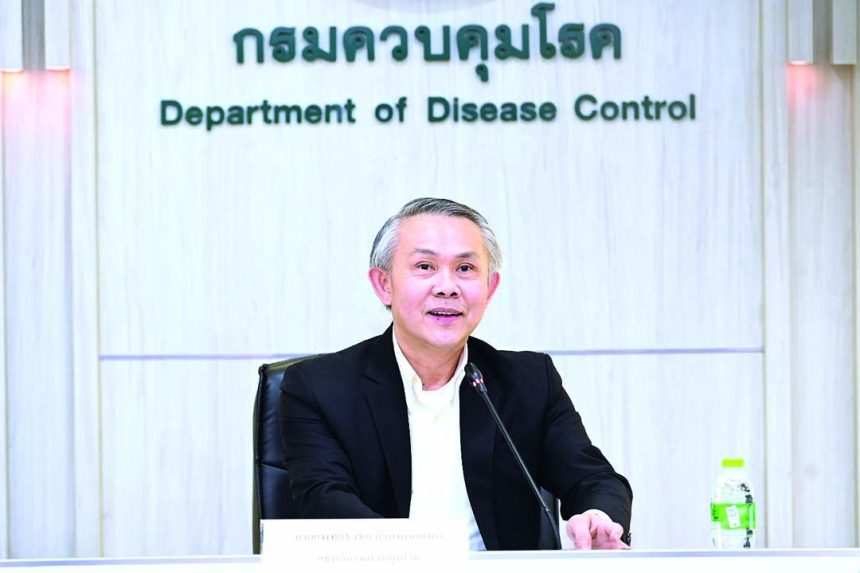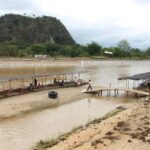Director General Dr. Thongchai Keeratihattayakorn of the Disease Control Department announced yesterday that test results verified that the European man who arrived in Thailand from Africa last week had an Mpox Clade 1B variant Monkey Pox infection.
Dr. Thongchai said that Europe is the first case of the Mpox Clade 1B variant in Thailand and that, in accordance with global health standards, they would notify the World Health Organisation of the outcome.
He said the European man admitted he had been in contact and had direct touch with 43 individuals since his arrival and advised them to see a hospital right away if they experienced fever or rashes. None have shown symptoms as of yet.
Since the discovery of the Mpox Clade 1B variant, the Department of Disease Control and the Department of Health have imposed restrictions at all borders, especially at Suvarnabhumi International Airport.
Travelers originating from African nations where reports of outbreaks of the monkeypox variety, Clade 1B Mpox, are required to register through the Thai Health Pass system and undergo screening before and after entering Thailand.

About the Claude1 Mpox Monkey Pox outbreak
Since January 2023, the Democratic Republic of the Congo (DRC) has documented over 27,000 presumed cases of mpox and more over 1,300 fatalities. There are two distinct categories of mpox, namely clade I and clade II. Clade I typically results in a greater proportion of individuals with mpox experiencing severe illness or death in comparison to clade II.
Clade 1 mpox is endemic in the Democratic Republic of the Congo (DRC). The ongoing epidemic is more extensive in its geographical reach than to any prior outbreak in the Democratic Republic of Congo (DRC). Additionally, clade I mpox has transmitted to several neighbouring countries, namely Burundi, Central African Republic, Republic of the Congo, Rwanda, and Uganda.
Furthermore, there has been a travel-associated case reported in Kenya. All of these countries are currently documenting instances of (Monkey Pox) clade I mpox, and a few of them have connections to the Democratic Republic of the Congo (DRC).
On August 14, 2024, the World Health Organisation (WHO) officially designated the epidemic as a Public Health Emergency of International Concern (PHEIC). This represents the World Health Organization’s most severe global warning, and it acknowledges the significant danger that this virus presents to governments worldwide.
The proclamation highlights the urgent public health dangers that demand the international community to come together and allocate exceptional resources for preventive and response.

Geoff Thomas is an award winning journalist known for his sharp insights and no-nonsense reporting style. Over the years he has worked for Reuters and the Canadian Press covering everything from political scandals to human interest stories. He brings a clear and direct approach to his work.














